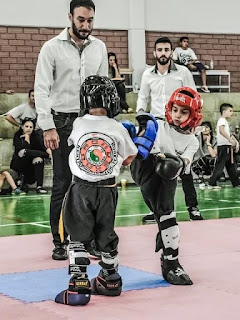How Much Time do you need to Learn Martial Arts?
Learning martial arts is a commitment that requires time, dedication, and patience. There is no definitive answer to the question of how much time it takes to learn martial arts, as it depends on several factors, such as the style of martial arts, the frequency of practice, the student's level of dedication, and natural ability.
In this article, we will explore some of the factors that affect the time it takes to learn martial arts and give some estimates of how long it may take to reach certain levels of proficiency.
- Style of Martial Arts
- Frequency of Practice
- Level of Dedication
- Natural Ability
- Goals and Expectations
Different martial arts have different training methods and requirements, which can affect the time it takes to learn them. For example, some styles of martial arts may focus more on physical conditioning and technique, while others may emphasize mental and spiritual development.
Karate and taekwondo are two examples of martial arts that typically have a well-defined ranking system and require several years of practice to reach the black belt level. In general, it can take 3-5 years of consistent practice to reach the first-degree black belt level in these styles.
Brazilian Jiu-Jitsu and other grappling-based martial arts may take longer to learn, as they involve more complex techniques and strategies that require a deeper understanding of body mechanics and leverage. It can take 5-10 years or more to reach the black belt level in these styles.
The frequency of practice is another important factor that affects the time it takes to learn martial arts. In general, the more time a student spends practising, the faster they will progress.
Most martial arts schools offer classes several times a week, and many students choose to supplement their training with individual practice outside of class. For example, a student who practices martial arts 2-3 times per week and spends an additional 1-2 hours practising on their own may progress faster than a student who only practices once a week.
The level of dedication and commitment of the student is another important factor that affects the time it takes to learn martial arts. Students who are highly motivated and committed to their training are more likely to progress faster than those who are less dedicated.
Some students may choose to devote more time to their training by attending extra classes, workshops, or seminars. Others may choose to compete in tournaments or other events to test their skills and gain experience.
Natural ability is another factor that can affect the time it takes to learn martial arts. Some students may have a natural aptitude for martial arts, such as good coordination, flexibility, and body awareness. These students may progress faster than those who struggle with these skills.
However, natural ability is not the only factor that determines success in martial arts. Hard work, dedication, and perseverance can often overcome natural limitations.
Finally, the goals and expectations of the student can also affect the time it takes to learn martial arts. Some students may be content to practice martial arts as a hobby and may not be concerned with achieving high levels of proficiency. Others may have more ambitious goals, such as becoming a competitive athlete or a martial arts instructor.
The time it takes to reach these goals will depend on several factors, including the student's level of dedication, natural ability, and the quality of instruction they receive.
Conclusion
In conclusion, there is no one-size-fits-all answer to the question of how much time it takes to learn martial arts. The time it takes to become proficient in martial arts depends on several factors, including the style of martial arts, the frequency of practice, the student's level of dedication, natural ability, and goals and expectations.
